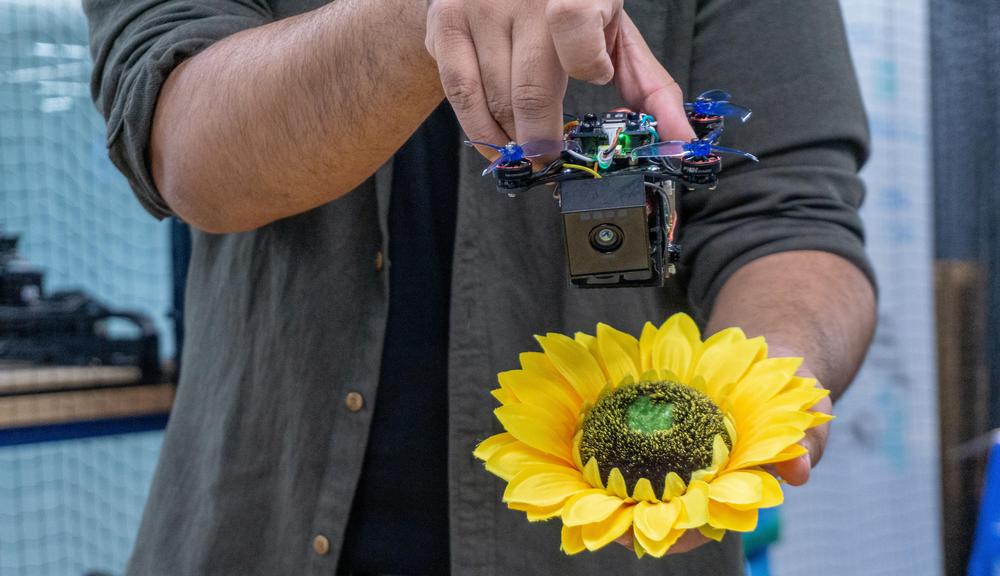
Grad student Melissa Mobley and advisor Prof. Robert Gegear.
As the fate of the bee goes, so goes our diet, as well as our plants, gardens, fruits, and vegetables.
So says grad student Melissa Mobley, whose research was recently recognized by Sigma Xi: The Scientific Research Society.
“One third of our diet comes from pollinated food,” says Mobley. “Even in your backyard, your garden would cease to exist. Your flowers lining the walkway wouldn’t be there without bees’ pollination.”
Mobley’s research uses the common Northeastern bumblebee, Bombus impatiens, — “the fat, buzzy ones” — as a model for native pollinators.
At the research conference in Kansas City, Mo., attended by students from throughout the U.S. and abroad, Mobley received the Inaugural Award from Sigma Xi’s executive director for her research presentation skills. She was also recognized in the poster competition, for her work displaying doctoral research about the bee decline.
A fifth-year doctoral candidate in the biotechnology department, Mobley plans to become a research scientist. Her advisor is Robert Gegear, assistant professor of biology and biotechnology.
A Leominster native, Mobley was unsure of which lab she wished to join when she came to WPI. But as a child, she had a bug collection, and would catch butterflies. At WPI, Gegear asked her, “Can you use a net?”

A fifth-year doctoral candidate in the biotechnology department, Mobley plans to become a research scientist.
“It was a perfect fit!” Mobley said with a laugh. Her research is titled “The Buzz about Bee Behavior: Taking an Interdisciplinary Approach to Assess the Role of Pathogens in Bumblebee Declines.”
As a pillar of food and habitat within the ecosystem, Mobley believes the study of bees’ decline is of great import, especially when noting that some species have become extinct over the last decade.
Her preliminary research has determined that pathogens, or disease-producing agents, may severely affect the behavior of foraging bees. She believes that pesticides and other toxins have similar effects, and that multiple stress factors likely compound the problem, resulting in the bees’ decline.
Mobley has found that “forager bees” that collect food — floral pollen and nectar — are becoming sickened, resulting in fewer bees being able to reproduce in a healthy manner.
“Colonies are kind of weird,” she says, “all of the females don’t mate,” with the queen bees being the egg-layers.
“This project really drew me to it,” says Mobley, “because it involves something that affects all of us.”
– BY BILL THOMAS


